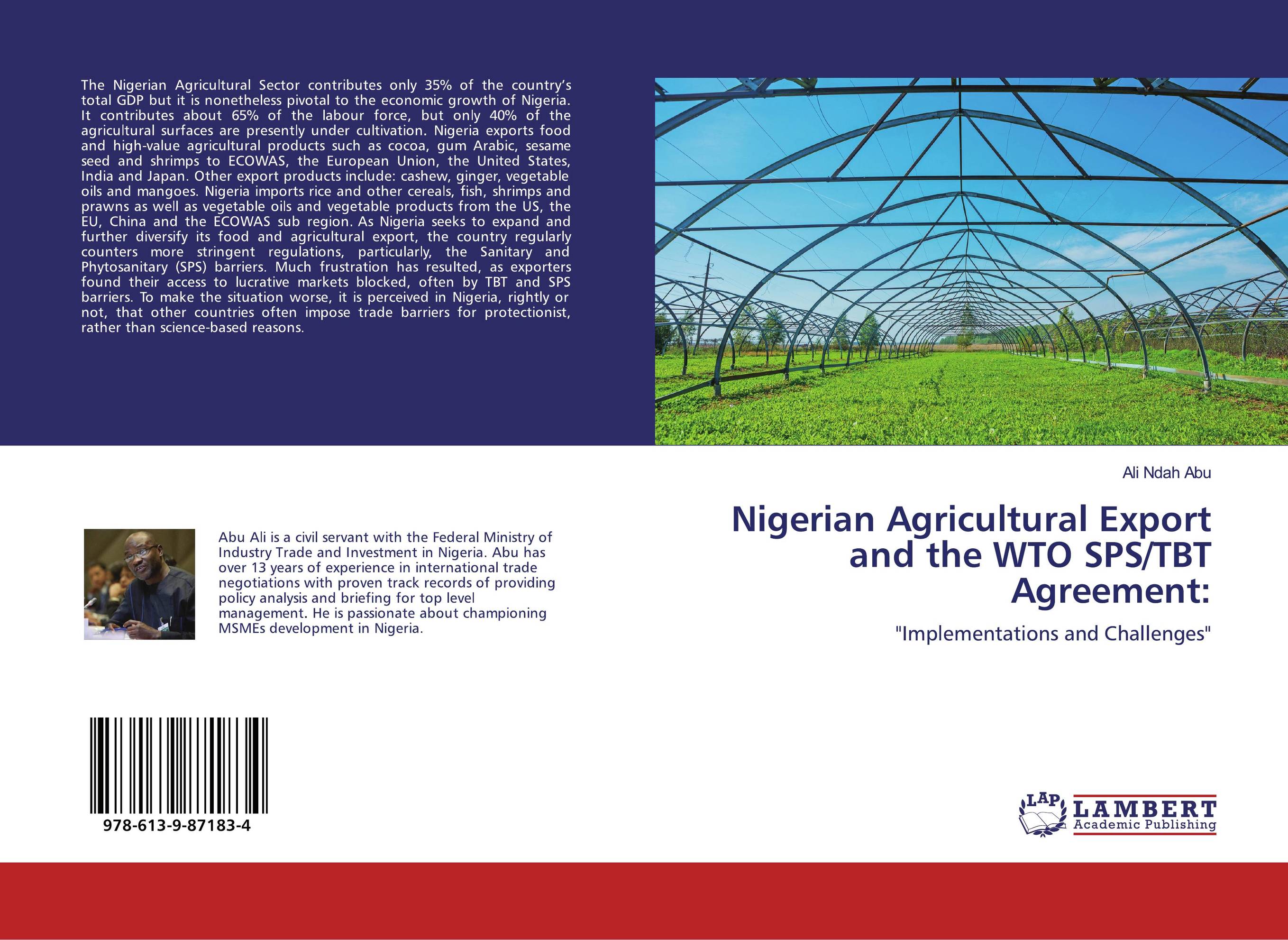| Поиск по каталогу |
|
(строгое соответствие)
|
- Профессиональная
- Научно-популярная
- Художественная
- Публицистика
- Детская
- Искусство
- Хобби, семья, дом
- Спорт
- Путеводители
- Блокноты, тетради, открытки
Nigerian Agricultural Export and the WTO SPS/TBT Agreement:. "Implementations and Challenges"

В наличии
| Местонахождение: Алматы | Состояние экземпляра: новый |

Бумажная
версия
версия
Автор: Ali Ndah Abu
ISBN: 9786139871834
Год издания: 2018
Формат книги: 60×90/16 (145×215 мм)
Количество страниц: 88
Издательство: LAP LAMBERT Academic Publishing
Цена: 31463 тг
Положить в корзину
Позиции в рубрикаторе
Сферы деятельности:Код товара: 209642
| Способы доставки в город Алматы * комплектация (срок до отгрузки) не более 2 рабочих дней |
| Самовывоз из города Алматы (пункты самовывоза партнёра CDEK) |
| Курьерская доставка CDEK из города Москва |
| Доставка Почтой России из города Москва |
Аннотация: The Nigerian Agricultural Sector contributes only 35% of the country’s total GDP but it is nonetheless pivotal to the economic growth of Nigeria. It contributes about 65% of the labour force, but only 40% of the agricultural surfaces are presently under cultivation. Nigeria exports food and high-value agricultural products such as cocoa, gum Arabic, sesame seed and shrimps to ECOWAS, the European Union, the United States, India and Japan. Other export products include: cashew, ginger, vegetable oils and mangoes. Nigeria imports rice and other cereals, fish, shrimps and prawns as well as vegetable oils and vegetable products from the US, the EU, China and the ECOWAS sub region. As Nigeria seeks to expand and further diversify its food and agricultural export, the country regularly counters more stringent regulations, particularly, the Sanitary and Phytosanitary (SPS) barriers. Much frustration has resulted, as exporters found their access to lucrative markets blocked, often by TBT and SPS barriers. To make the situation worse, it is perceived in Nigeria, rightly or not, that other countries often impose trade barriers for protectionist, rather than science-based reasons.
Ключевые слова: International Trade, trade law, economics, agriculture



